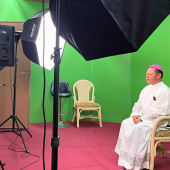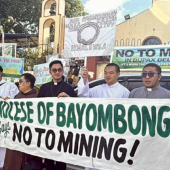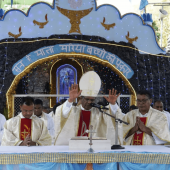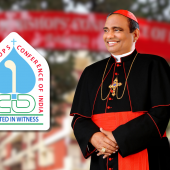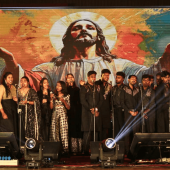Religious, lay leaders call for action to protect the environment
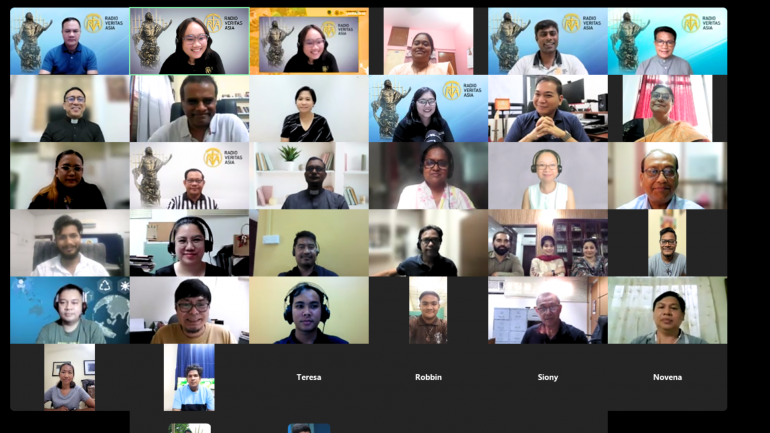
On the occasion of the 10th year of Laudato Si, religious and lay leaders appealed to people to do their share in protecting and conserving nature.
In a webinar hosted by Radio Veritas Asia on May 23, San Pablo diocese Bishop Marcelino Antonio Maralit, Jr., re-echoed the pastoral document on Laudato Si issued by the Federation of Asian Bishops’ Conferences (FABC).
The pastoral letter has a three-fold invitation, he noted.
“The first one is to listen deeply to the cry of the Earth and the poor,” Maralit said. “The second one is to embrace our vocation as communicators of hope. And the third one is to have concrete and bold action points that could help inform, engage, and inspire people.”
The bishop urged social communicators to respond to the call of the pastoral letter.
“Laudato Si speaks of how things are getting worse,” Maralit said. “We are looking at the present wounds of our common home. And not only are we looking at the present wounds of our common home, but we also see and experience this reality, especially here in Asia.”
The loudest cry of nature and the poor possibly reverberate from the continent, he said. Rainforests in regions in Asia are being denuded more than anywhere else.
“The indigenous communities across Asia sustain the hardest impact of the abuse on rainforests as rainforests are their home,” Maralit said.
The sea levels are also rising, the bishop pointed out. There are more floods in Asia than any other places on Earth. Many countries experience this, like Bangladesh, the Philippines, Vietnam, and even some parts of China.
The air quality is also getting worse across the world, especially in Asia, he said. A study by the UN reveals that Asia has the worst air pollution.
“Parts of Asia also experience drought and more destructive natural calamities than in the past,” Maralit said. “Areas not usually traversed by typhoons are now frequently struck by storms, like Mindanao in the Philippines.
The bishop also warned of people who spread social media narratives that claim that climate change and global warming are not happening and are not true.
Maralit also mentioned that Pope Leo XIV wants the environment advocates to harness Artificial Intelligence.
“We need to use this (AI),” he said. “We need to sit down and talk about it in the best way we can because we are already experiencing the advantages in using it”
“One of the challenges is we commit ourselves to help all the dioceses and conferences and everyone who wants to know how to use this new technology in a positive and missionary way,” he said.
The global Laudato Si movement took flight in Asia, said Ms. Cheryl Dugan, Laudato Si Movement director for Asia Pacific.
In 2015, shortly after the devastation of Super Typhoon Haiyan in the Philippines (locally known as Typhoon Yolanda), Cardinal Tagle helped the founders of the movement to hand over the foundational statement prepared by founders from all over the world to Pope Francis during his visit to the Philippines, she said. Since then, Asia Pacific has become the most active region in this mission.
Pope Francis began Laudato Si with this question: What is happening to our common home, Dugan said.
“If we look around us it becomes a painful question,” she said. “We have been blessed with a very beautiful planet. Yet what we are witnessing today, what the children are witnessing today is a beauty deeply wounded. So Asia Pacific, rich and diverse as it is, is also one of the most vulnerable.”
The world faces what the UN referred to as a triple planetary crisis, she noted. Climate change, biodiversity loss, and pollution.
“These are not just concepts, not something that will happen in the future," Dugan said. “It is something that we live in now. We feel them now. We experience them every day.”
Laudato Si reminds the world that it needs to see and accept the fact that mankind’s common home is seriously threatened, she added.
“We are feeling the impact of climate change in many ways,” she said. “Asia is the most disaster-affected continent. That is according to the World Meteorological Organization.”
In 2013 alone, 79 major climate disasters hit the region, Dugan said. Eighty percent were floods and storms that claimed over 2,000 lives and millions of people affected.
The rise in sea levels is threatening small islands in the Asia Pacific, like Tuvalu, Kiribati, and Marshall Islands, and megacities, like Manila, Mumbai, Jakarta, and Bangkok, she said.
“And climate change is hurting our food system and water security due to unpredictable weather patterns, drying of rivers, warming of the ocean,” Dugan said.
In 2022, climate-related disasters have displaced over 32 million people, she noted. Seventy percent of this number is in Asia.
“And these are not just statistics,” Dugan said. “They are families, livelihoods, cultures being uprooted, and often the poorest are the most vulnerable.”
Over the past ten years, Laudato Si has been a beacon of inspiration, fostering change, innovation, and community empowerment, said Victor Sadaya, RVA general manager.
“All rooted in the urgent call of the late Pope Francis to take action to save our environment,” he said. “To save Mother Earth.”
Early initiatives undertaken by RVA faced challenges, embraced opportunities, and worked together to create something remarkable for the common good, Sadaya added.
“This milestone is not just a testament to the hard work of the RVA team, but also a manifestation of the support and shared beliefs of every individual who has been part of this meaningful journey of RVA,” he said.
“The threats that nature faces today is a world that refuses to listen and an economy that puts wealth above lives,” Maralit said. “These threats have been around before, present today, and are evolving.”
Radio Veritas Asia (RVA), a media platform of the Catholic Church, aims to share Christ. RVA started in 1969 as a continental Catholic radio station to serve Asian countries in their respective local language, thus earning the tag “the Voice of Asian Christianity.” Responding to the emerging context, RVA embraced media platforms to connect with the global Asian audience via its 21 language websites and various social media platforms.









